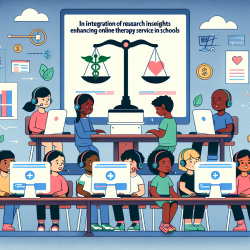The ongoing debate surrounding healthcare reform in the United States often overlooks a critical aspect: the distinction between healthcare and public health. While healthcare focuses on individual patient care, public health encompasses a broader spectrum of activities aimed at promoting the health of entire populations. This distinction is vital for practitioners seeking to improve their skills and make a more significant impact on community health.
The Core Principles of Public Health
Public health is guided by several core principles that differentiate it from traditional healthcare:
- Primary Prevention: Public health emphasizes preventing diseases before they occur, rather than solely treating them after they arise.
- Social Determinants: It recognizes that health is influenced by social structures, economic realities, and environmental factors.
- Communitarianism and Social Justice: Public health seeks to address health disparities through collective efforts and equitable access to resources.
- Global Perspective: Public health initiatives often have a global reach, acknowledging that diseases know no borders.
The Role of Poverty in Population Health
Poverty is one of the most significant determinants of global population health. It affects access to healthcare services, quality of medical care, and overall well-being. Practitioners can enhance their skills by understanding the impact of poverty on health outcomes and advocating for policies that address these disparities.
The inverse relationship between socioeconomic status and health has been well-documented. Addressing poverty requires a comprehensive approach that includes building infrastructure, political consensus, and targeted interventions to improve access to resources and services.
Implementing Public Health Reform Insights
Practitioners can improve their skills by implementing insights from public health reform research. Here are some actionable steps:
- Advocate for Policy Change: Engage in advocacy efforts to promote policies that address social determinants of health, such as poverty reduction initiatives and equitable resource distribution.
- Collaborate Across Disciplines: Work with professionals from various fields, including environmental scientists and social workers, to develop comprehensive strategies for improving population health.
- Focus on Prevention: Prioritize preventive measures in practice settings to reduce the incidence of diseases and promote long-term well-being.
- Educate Patients and Communities: Raise awareness about the importance of addressing social determinants of health and empower individuals to take proactive steps towards healthier lifestyles.
The Importance of Global Health Collaboration
The interconnectedness of human life with other organisms and ecosystems underscores the need for global collaboration in public health efforts. Initiatives like One Health advocate for strategic partnerships among public health professionals, veterinarians, and environmental scientists to address complex health challenges.
This collaborative approach ensures that practitioners are equipped with diverse perspectives and resources necessary to tackle global health issues effectively.
A Call to Action for Practitioners
The journey towards effective public health reform requires a shift in focus from individual behaviors to systemic issues like poverty and social injustice. Practitioners have a crucial role in driving this change by advocating for policies that prioritize upstream determinants of health while addressing downstream effects.
By embracing these insights, practitioners can enhance their skills, contribute to meaningful reforms, and ultimately improve the well-being of populations worldwide.
To read the original research paper, please follow this link: Healthcare Reform???Public Health Reform: On Pathogens, Poverty, and Prevention.










